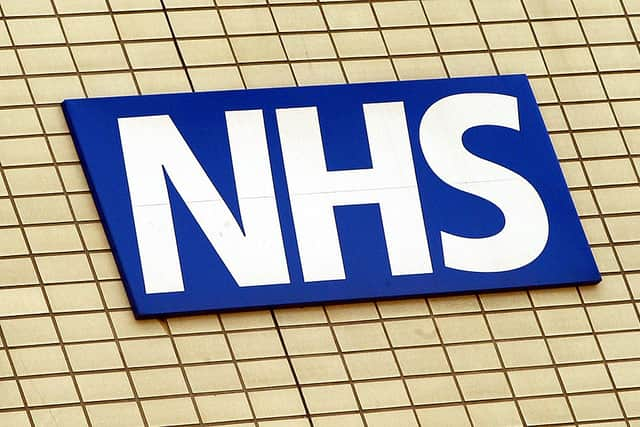NHS mental health warnings: how underfunded are services, what are barriers to mental health care?
This article contains affiliate links. We may earn a small commission on items purchased through this article, but that does not affect our editorial judgement.
and live on Freeview channel 276
More people will be forced out of mental health services if no new cash is invested in the sector within the next two years, experts have warned.
Sean Duggan, chief executive of the Mental Health Network, has said that the cost of living crisis could lead to another surge in people seeking help for mental health problems. This, combined with a long-term lack of investment in services, will cause unsustainable pressure on the system - and result in waiting lists rising.
Advertisement
Hide AdAdvertisement
Hide AdHis warning comes alongside a new report from the Mental Health Network, (part of the NHS Confederation), which says mental health services are currently being left to fail - with patients struggling to access both emergency and routine care.
This is in spite of a new cash for the NHS announced by Chancellor Jeremy Hunt in his recent Autumn Statement, as, according to Mr Duggan, while this will enable mental health services to continue at present, the funding will come to an end in 2024. Therefore, a new plan backed with “sustainable investment” is needed - which has prompted the NHS Confederation and Centre for Mental Health to call on the government to urgently set out its vision for the next decade of mental health support.
Mr Duggan said: “If you don’t do anything beyond where we are now you will get more exclusions, more difficult access, more pressure, and yes waiting lists [will rise]. That pressure goes back into primary care, doesn’t help the acute services, it doesn’t help the community services or urgent and emergency care.”


The industry leader added that after the two years of government funding ends in 2024, “we can’t do without” long-term sustainable investment. “We have started from such a low baseline and all the pressures that we know are existing in services at the moment.”
Advertisement
Hide AdAdvertisement
Hide AdSo, exactly how underfunded are mental health services, and what are some of the barriers to treatment and care? Here’s what we know about the situation.
How underfunded are mental health services?
Mind, a leading mental health charity, has said that the main issue with mental health funding is that demand for support “greatly” exceeds current available capacity. Understaffing is one reason for this - but the lingering effects of the coronavirus pandemic and the yet-to-be fully known impacts of the cost of living crisis are also contributing to the problem.
James Harris, associate director of campaigns and communications at Rethink Mental Illness, explained: “The nation’s mental health has been hit by the double blow of a global pandemic and a cost-of-living crisis, meaning more people than ever are turning to a healthcare system that is struggling to meet demand.”
He added that while new plans and cash injections have been announced by the government, they do not meet the “scale of the challenge” facing the UK. Paul Spencer, head of policy and campaigns at Mind, echoed these thoughts - adding that although the government had made some welcome interventions to the sector, without “wholescale reform” to the wider system, these were “something of a sticking plaster”.
Advertisement
Hide AdAdvertisement
Hide Ad

In terms of data on the topic, the latest figures from NHS Digital revealed a 30% rise in the number of under-18s in contact with mental health, learning disability, and autism services. In 2019-2020, the pre-pandemic year, 763,888 children were seeking mental health support. This compares with 992,647 in 2021-2022.
The data also shows that 3,256,695 people of all ages were in contact with mental health, learning disabilities, and autism services at some point that year, with the overall total rising by almost a fifth in three years - up from 2,803,244 in 2020-21, 2,878,636 in 2019-20, and 2,726,721 in 2018-19.
This means that currently, 1.8 million people are on waiting lists for mental health support - and there are a further 8 million unable to get any kind of help at all.
Mr Harris added that something that is concerning experts is “we don’t know” the scale of the impact that the cost of living crisis will have - but it is likely to “hit in a year or two’s time. “That’s another reason why when the long term plan finishes [in 2024], we have to be ready with some investment.”
Advertisement
Hide AdAdvertisement
Hide AdWhat is the government doing?
The Chancellor of the Exchequer recently announced new funding for the NHS in November’s Autumn Statement.
Speaking on this, a Department of Health and Social Care spokesperson said: “We have committed to increasing investment into NHS mental health services by £2.3 billion a year by 2024, meaning two million additional people will be able to access NHS-funded mental health support – and we’re aiming to grow the mental health workforce by 27,000 more staff by this time too. In addition, we are investing £150 million over the three years to 2024/25 to bolster NHS mental health services, better support people in crisis outside of A&E, and enhance patient safety in mental health units.”
Mr Duggan also said that he had heard that a cross-government plan for mental health was still being talked about at the Department of Health and Social Care, but there has been no indication of when this might be published.


What are common barriers to mental health care?
Research suggests that some of the most common barriers to accessing mental health care are:
Advertisement
Hide AdAdvertisement
Hide Ad- limited availability of help and services
- lack of affordability
- lack of education and knowledge
- social stigma
This is one of the reasons why, according to Mr Duggan, response to the problem needs to come from various sectors. He commented: “The headline is mental health can’t provide a solution on its own, it has to be the Department for Health and Social Care, the Ministry of Justice, and education. And the whole thing about social care.
“We could really do some wonderful things and speed up the long term plan if we had investment into social care, not just for the elderly - I’m talking about children’s and adults of working age, social care as well.”
If you need support for your mental health, help is available from places like Mind and Samaritans. You can also contact your GP, or in an emergency, call 999.
Comment Guidelines
National World encourages reader discussion on our stories. User feedback, insights and back-and-forth exchanges add a rich layer of context to reporting. Please review our Community Guidelines before commenting.
